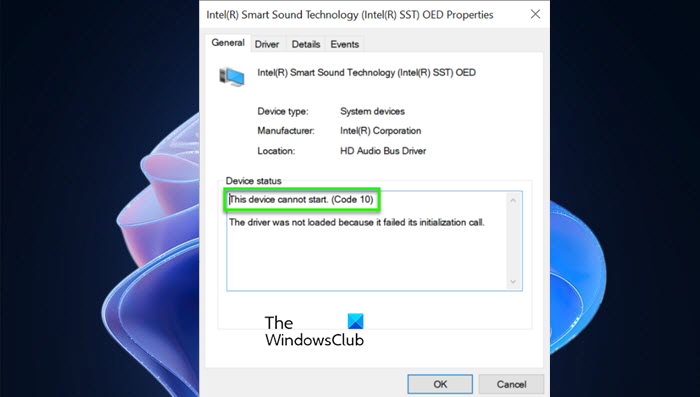

- How to disable intel smart connect technology windows 10 how to#
- How to disable intel smart connect technology windows 10 install#
- How to disable intel smart connect technology windows 10 full#
- How to disable intel smart connect technology windows 10 windows 8#
You can put your base install on the SSD with home directories and bulky data on the HDD, and that should give you a good balance of speed and simplicity. I'm now going to make a partition in the unused space while in Windows and see if I can just edit/replace that without breaking SRT.Īll this aside, OP is single-booting, so using a more Linux-specific solution is probably a good idea. Same results, gparted thinks my SSD is mispartitioned. SRT offline! SSD cache broken! D'oh!īooted Debian, fully zero'ed the SSD, booted Windows, set up SRT over again (thinking that the GPT 'errors' were a stale GPT from before enabling SRT). I let it, then realized what had happened and rebooted to Windows.

It seems that gparted can see the entire disk area, including the cache, so it noted some "problems" with my GPT layout and offered to fix them for me. I fired up gparted to partition the leftover mSATA SSD and problems began. The 1TB disk is even faster than before, it's great having a big SSD cache for my bulk data disk, as it's 5400rpm and quite sluggish otherwise. I told SRT to let the other 192GB be available for use, planning to move my Debian install there, and expand the Windows partition, giving everything more room.Īfter SRT populated the cache and I'd rebooted once or twice, I booted my Debian install. After booting Windows again, I enabled SRT again, and let it use the maximum 64GB. I booted Windows, disabled Smart Response, let it settle, then shut down and made the physical switch. Recently I switched out the 32GB for a 256GB. The 32GB SSD just disappeared entirely when SRT was enabled. SRT worked in both Linux and Windows since it's a hardware/firmware operation, I verified that the 1TB disk was accelerated even while I was in Linux. I originally installed Win8 and Debian on the 2.5" SATA SSD, and used the complete 32GB mSATA to cache the 1TB HDD, since it is fairly slow and I keep a lot of VMware VMs there.
How to disable intel smart connect technology windows 10 full#
I have my full sized Samsung 830 Pro 256GB in the 2.5" bay and a 1TB disk in the optical bay via an adapter. I have a Dell Precision M4800 which came with a 32GB mSATA SSD originally and now has a 256GB mSATA SSD. I'm a little late to the party, but I thought my experience might be useful. Model: "Intel Mobile 82801 SATA RAID Controller"ĭevice: pci 0x282a "Mobile 82801 SATA RAID Controller" While in Legacy BIOS mode the output of sudo hwinfo -storage I have the Dell Inspiron 15R special edition dw510268au with a 32GB mSATA cache and 1TB 5400rpm hdd. This same DVD boots fine in UEFI + AHCI or Legacy BIOS modes. Though sometimes the sector it cannot read is 0x0.

This behavior is the same with 12.04.2 LTS and 13.04 LiveCD. Then it goes back to the screen where I can select "Try Ubuntu without installing". The messages I receive and options I choose are: Secure boot not enabledĮrror: failure reading sector 0圆0100 from 'cd0'Įrror: you need to load the kernel first. I've tried the 12.04.2 LTS and I'm currently trying to use 13.04 Or for that matter if that even applies to SRT, as intel have too many similar acronyms that are closely related.

I've also found info that suggests that Intel supports mdadm and not dmraid, but I don't know if that means I can install in AHCI mode and switch after the install, or if I need to prepare a custom installer somehow.
How to disable intel smart connect technology windows 10 how to#
I would like the benefits of SSD caching to apply to the entire file system and not just the OS portions or I would just disable SRT and install linux on to the SSD.Ī bit of searching around the net reveals plenty of articles like Installing Ubuntu Alongside a Pre-Installed Windows with UEFI that tell how to disable these features. I'm not concerned with keeping windows and am wanting a linux only machine, so I do not have the dual-boot issues that complicate matters. How can I get Ubuntu to boot with UEFI and Intel Smart Response Technology (SRT) enabled? Do I have to install Ubuntu with them turned on? if so how? or can I enable these features after I've installed Ubuntu and still have them function?
How to disable intel smart connect technology windows 10 windows 8#
Install ubuntu on windows 8 with intel smart response.Installing Ubuntu Alongside a Pre-Installed Windows with UEFI.This question has NOT been answered by the following due to them saying to permanently disabling these features


 0 kommentar(er)
0 kommentar(er)
